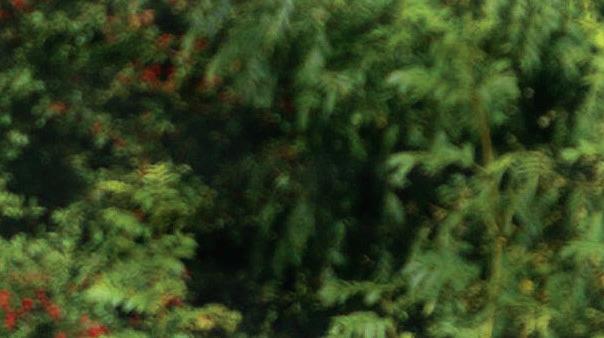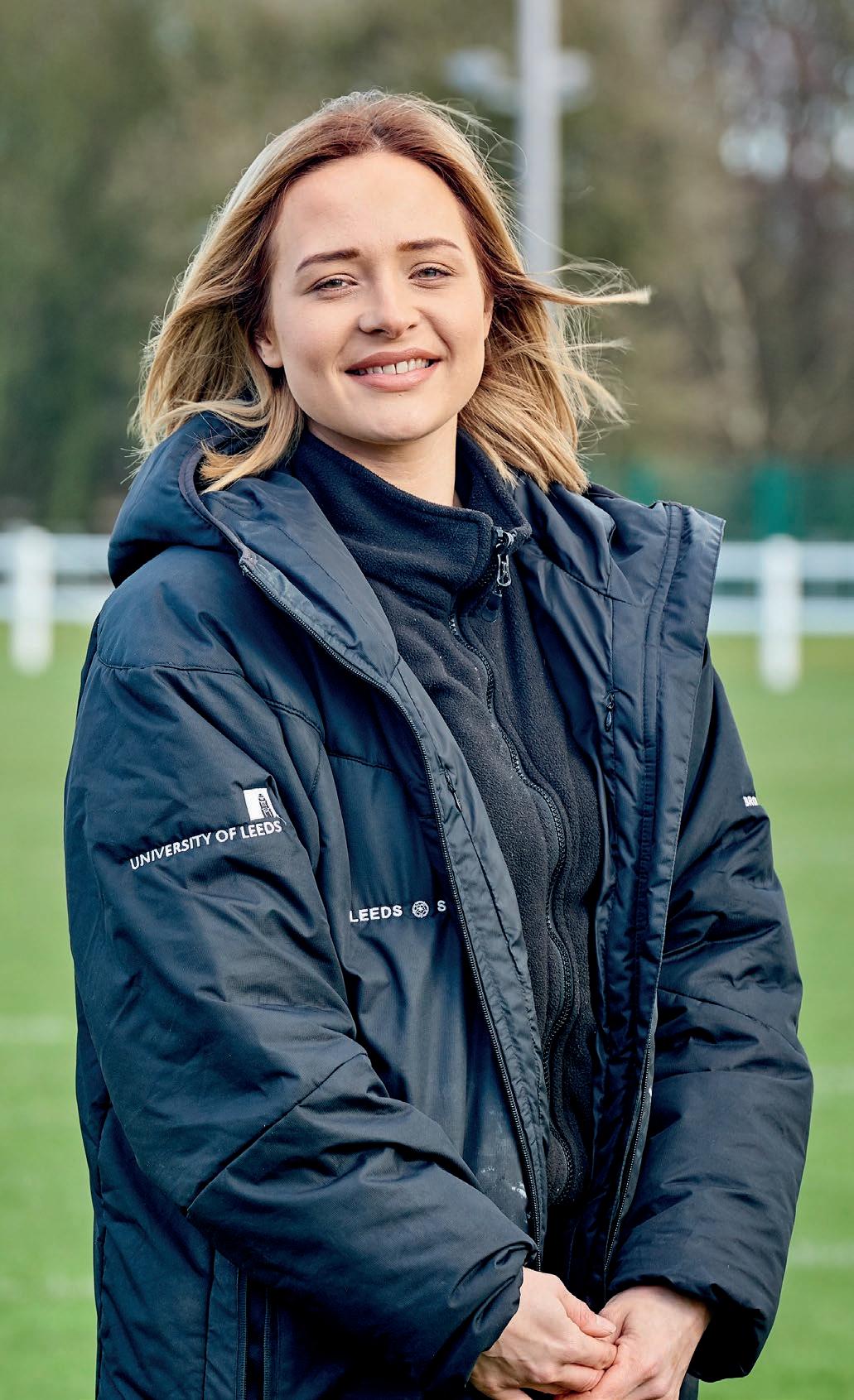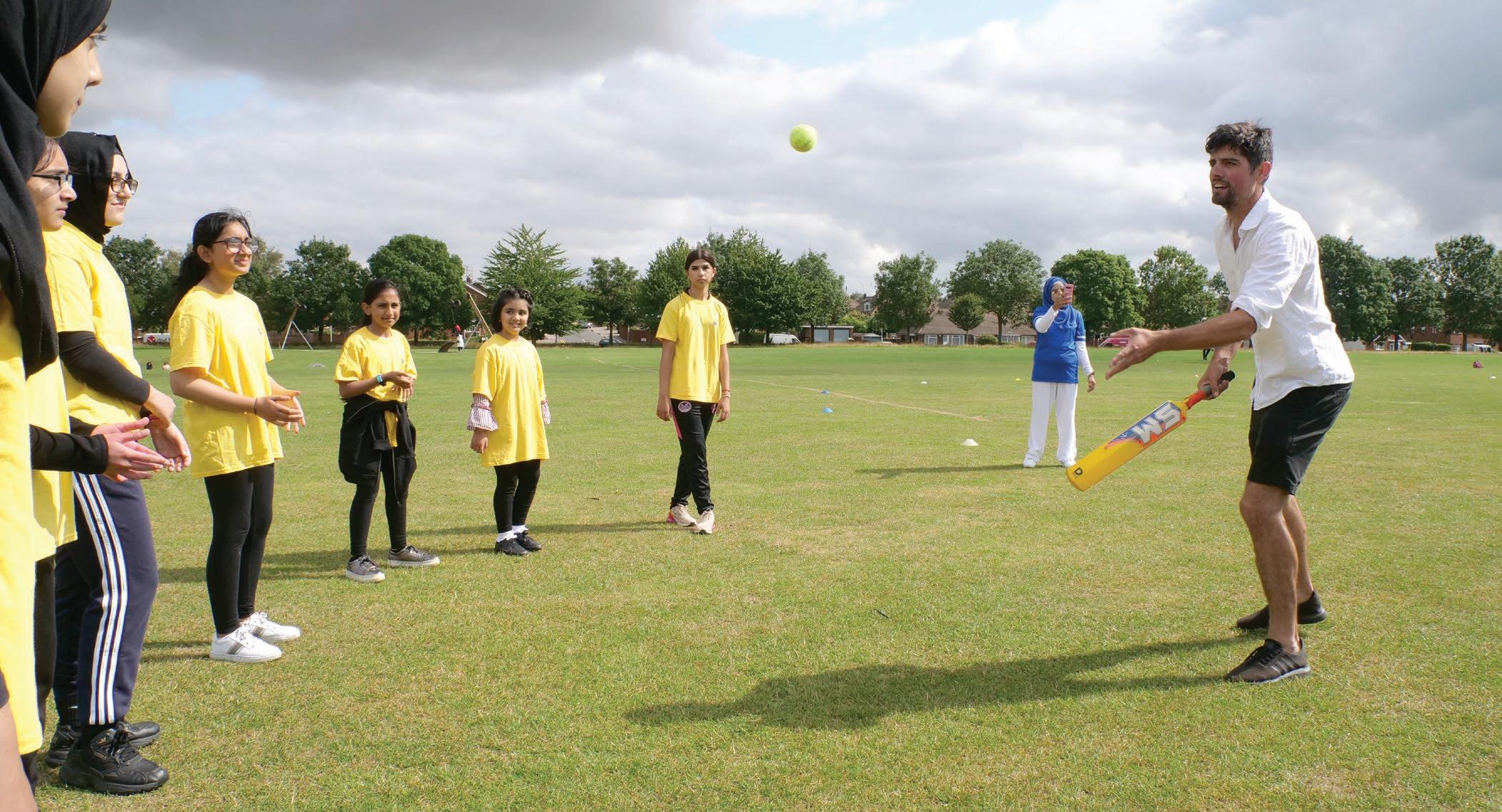
7 minute read
RAISING THE GAME
Warrington Wolves’ George Williams holds onto the ball on the pristine pitch at the Halliwell Jones Stadium
Warrington Wolves head groundsman and GMA Award winner Niall Hazlehurst talks about teamwork, why he moved from football to rugby league and how he’s helping to raise pitch standards BY KAREN MAXWELL
The recent improvement in pitch standards is getting noticed at Warrington Wolves’ Halliwell Jones Stadium – by players and management alike. This is due to the hard work and dedication that 30-year-old Niall Hazlehurst has put into his new role as head groundsman since he joined the club in February last year – after making the move from football to rugby league.
He’s not the type to take all the credit, though, citing the invaluable advice from Leeds Rhinos’ head groundsman, Ryan Golding, the support of the club’s CEO, Karl Fitzpatrick, and chairman, Stuart Middleton, and the help of his newly recruited grounds assistant, Phil Bannon.
The club’s ambition is to secure its first Super League win and Niall’s ambition is to deliver the best pitch possible to help them do so – and he has been busy educating the club on why pitch standards are so integral to the team’s success.
Since joining the club, Niall has been impressed by its team spirit. “Our CEO
Grounds assistant Phil keeps the pitch up to scratch with one of the INFINICUT mowers that Niall purchased after the club gave him a budget of £35,000 towards new machinery

will often come over to the shed for a coffee, which is unheard of in football, and players and coaches also regularly pop in for a chat and ask for turf advice,” he says. “They allow you to get the job done and trust you. The whole club works well as one big family who respect each other.”
CHANGE FOR THE BETTER
Niall credits Ryan – who he met when they were both on the IOG (GMA) Young Board of Directors – for encouraging him to move from football to rugby. “He told me I’d fall back in love with the job because of the new challenges I’d experience as rugby is not my sport,” he explains.
Niall says he worked on his own during the first four months of his role, having taken over from the previous manager who had recently retired. During his first pitch inspection, Niall noticed the surface was “covered in worm casts, the grass was very weak due to a lack of ryegrass and the machinery must have been at least 20 years old”.
He says: “One of the first things I did was paint the inside walls of the grounds shed from the depressing breeze block grey to the club’s yellow and blue to reflect the grounds department’s unity within the club.”
Since then, Niall has managed to convince the chair and CEO that an investment in new machinery would help to quickly improve pitch standards. “I was fortunate that the chairman’s brother helped me with maintenance and I must have kicked off about our lack of

Niall’s career progression
Niall was planning to follow family members into the building trade when he left school until he got the chance to join a Myerscough College taster weekend, and he decided to pursue a career in grounds management there and then.
He worked as a volunteer on match days and during school holidays at Bolton FC before being offered an apprenticeship at the club’s new training ground. During this time, Niall’s work ethic won him the IOG (GMA) Young Groundsperson of the Year Award. He says he loved the team camaraderie at the club and stayed for 12 years – eventually becoming senior groundsperson.
He moved to Rochdale United FC, before taking some time out as a freelance landscaper, then made the move down south to work at Barnet FC before joining Fulham FC, where he said the work was demanding, but the team spirit was great. However, living away from his wife and two young children was becoming difficult so after 18 months he took the opportunity to change sports, move back up north and join Warrington Wolves.
Niall at the Halliwell Jones Stadium
resources because the chairman came knocking at the shed door. I explained to him that the pitch was not just a piece of grass – it should look immaculate and be a safe surface for players. We’ve got big lads, and need to ensure that when they plant their foot they are not going to roll or break their ankle.”
Much to Niall’s surprise, the club approved a budget of £35,000 towards new machines, which included a tractor-mounted sprayer, two INFINICUT cylinder mowers and an INFINCUT rotary mower. Niall also changed to ProSelect seed from ICL and gets his fungicides and fertilisers from Oakland Amenity, which he says has helped to get the pitch back into condition.

MAKING THE CUT
From the onset, Niall says the head coach wanted a firm, fast pitch. “The club was used to 25mm of grass height because we didn’t have good irrigation, but when I checked with Ryan, he advised that I cut it down to 22mm in the middle of summer to speed up the game.” Niall also used the off season to trench four middle lines in the pitch and put eight sprinklers through the middle to create a full irrigation system.
So have the players noticed a better surface? “The pitch definitely plays better. They used to have slipping issues in certain areas, but that’s now been sorted – and it’s great to get their compliments,” Niall says.
He adds, however, that the hardest part of his change from football to rugby is that nothing happens during winter. “The team just maintain the pitch in the winter months, which looks great until 30 17-stone lads play a game on it.
“I’ve learned more this last pre-season though, which is why I had one or two training sessions on the pitch. I know a couple of other rugby league clubs had constant training sessions during winter and the pitches took a battering, but one or two sessions gets the pitch used to playing again and wakes it up at a time of year when it normally goes dormant to give it a bit of a shake up.”
Another reason Niall says he took the job at Warrington Wolves is to help Ryan to fly the flag for rugby league grounds management “on this side of the Pennines”.
He says he’s keen to help the GMA’s rugby league regional pitch advisor, Richard Eastham, promote best practice in maintenance techniques as the sport’s profile is raised during this year’s Rugby League World Cup (RLWC) tournament. “I want to help Richard to raise standards, and the club CEO and chairman are happy for us to be used as a regional hub for volunteer education events and networking opportunities,” he says.
Regarding the club playing host to a RLWC game, Niall is expecting to get a brief for specific pitch preparation, but says it’s likely that the only unusual task will be spraying the in-goal areas with the advertiser’s logo. “It’s not like a FIFA game, with strict guidelines regarding cut and marking out. In fact, our pitch is marked totally differently to Ryan’s, for example. He uses dash lines whereas our head coach prefers us to use solid lines.”

HOT ON RHINOS’ HEELS
Looking towards Super League success, Niall says that the club’s aim is to be “the best in everything we do” and acknowledges that there’s a lot of catching up to do to get to Leeds Rhinos’ winning ways. “We’ve made great strides in the past year or so, with the machinery upgrades, getting the right staff in and educating the players and coaches on pitch usage. The whole club really wants to be the best – and, who knows, maybe we’ll have a better pitch than Ryan one day.”

The stadium’s turf is maintained so that the pitch plays firm and fast
Phil and Niall get stuck in to make the pitch rugby ready Inset: Niall installs a full irrigation system to speed up play

















